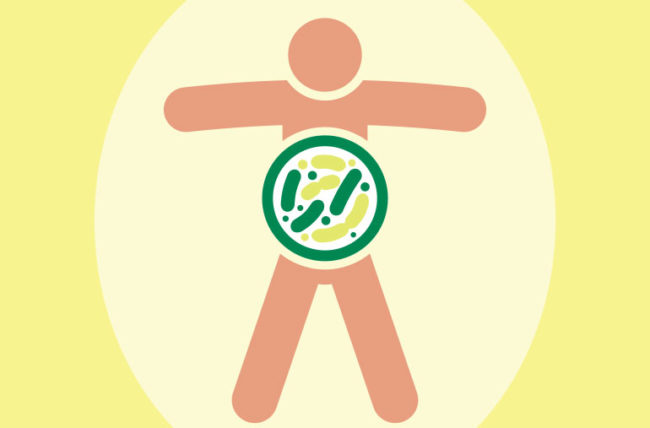If I had to choose the hottest topic in nutrition research right now – spanning all populations including, but not limited to athletes, critically ill patients, those who suffer from gastrointestinal disorders, or simply a healthy sedentary population – the gut microbiome is that topic!
So, what is this microbiome exactly? The gut microbiome, as defined by molecular biologist Joshua Lederberg, is the totality of microorganisms, bacteria, viruses, protozoa, and fungi and their collect genetic material present in the gastrointestinal tract (GIT). The gut microbiome, which is comprised of more microbial cells than the number of cells that make up the entire human body, plays an important role in many metabolic processes. These include the fermentation of undigested carbohydrates into short-chain fatty acids (SCFAs), fat metabolism, vitamin synthesis, and, perhaps most important in the current times, stimulates the maturation of the immune system and protects against potentially pathogenic microbes. It is even known to play a role in cognitive performance. Simply put, think of this microbiome as an army that resides in your gut and fights off outside invaders, builds important materials, and fortifies your body, allowing you to go about your business as usual.
A healthy gut is characterized by a high degree of microbial diversity. Dysbiosis, or a loss of microbial diversity, has been associated with various immune regulated conditions and disease states, and in addition has been linked to obesity. Dysbiosis equates to insurgents throwing your gut army off kilter.
The makeup of the gut microbiome is influenced by several factors including genetic and environmental factors, antibiotic use, type and amount of physical activity and, of particular interest, diet.
The importance of a diverse gut microbiome is applicable to all, but for athletes specifically, who train and perform at high intensities and often encounter challenges associated with gastrointestinal and immune health during and after races, positively affecting gut bacteria is of particular interest. Any strategy that improves an athlete’s ability to sustain consistency in training and racing, by reducing sick days and their vulnerability to infection, is ultimately a strategy that should be pursued.
So what can we do, as athletes, to maximize the health of our gut microbiota?
- Eat a diverse range of unprocessed, whole foods as this leads to a more diverse gut microbiome.
- In particular, eat fermented foods for their probiotics. Probiotics, often referred to as “good gut bacteria”, positively affect the gut microbiome. Examples of these foods are yogurt (make sure the label says “live and active cultures), kefir, kombucha, sauerkraut, pickles, miso, tempeh, kimchi, sourdough bread and some cheeses.
- Consider taking probiotics in supplemental form, especially so if you don’t enjoy the strong taste and smell of fermented foods. Klean Probiotic is an example of probiotic supplement, that is also NSF-Certified For Sport. Supplements should contain at least 10 billion CFU per serving.
- Also focus on getting prebiotic foods in your diet daily. Prebiotics are typically non-digestible fiber compounds that, among other roles, serve as “food” for probiotics by stimulating their growth and activity. Prebiotics can be found in foods such as apples, Jerusalem artichokes, asparagus, bananas, barley, berries, chicory, cocoa, dandelion greens, flaxseed, garlic, green vegetables, leeks, legumes (beans, chickpeas, lentils), oats, onions, tomatoes, and wheat. You can also take prebiotics in a supplemental powder form.
- Continue to train/be physically active as research has shown the beneficial impacts of exercise on the gut microbiome and its diversity.
- Take antibiotics only when necessary as they negatively affect the diversity of the gut microbiome.
Much remains unknown in regards to the gut microbiome and future research is needed. One particular area of interest is the potential use of athlete specific probiotics, as probiotic benefits appear to be strain-specific. Another area of interest is the investigation of particular types of nutrients, such as different types of fibers, proteins, fats, etc., and their impact on the microbiome composition, to create an ideal profile for an athlete’s diet.















Comments